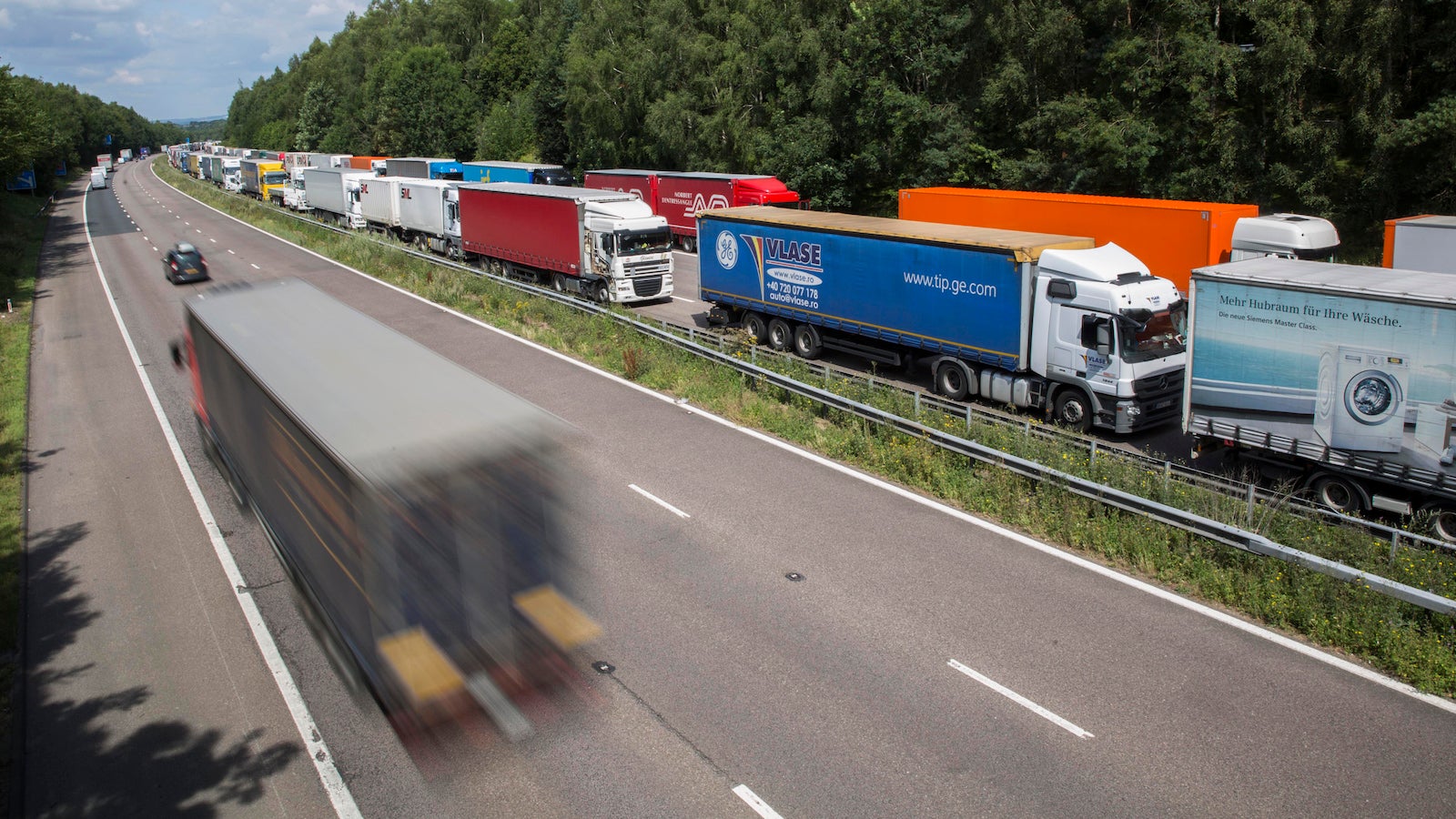Britain is quietly preparing for the world’s largest traffic nightmare
The town of Dover is England’s closest port to the European mainland, separated from France by just 20 miles of water.


The town of Dover is England’s closest port to the European mainland, separated from France by just 20 miles of water.
Around 10,000 trucks pass through Dover on a typical busy day. About 17% of the UK’s annual trade, worth $150 billion, passes through the port. Most of the trucks going to and fro are from the 28 countries that belong to European Union, which means they don’t have to deal with customs checks. It’s a fairly smooth, finely-tuned system—one that could be rocked when the UK leaves the EU.
The UK is grappling with the possibility of a “no-deal” Brexit that would leave no trade agreement in place when the country leaves the EU on March 30, 2019. That would necessitate the overnight return of customs checks for each and every one of those thousands of trucks a day that pass between the British mainland and the European continent.
All of those trucks will have to wait somewhere.
According to ITV political editor Robert Peston, UK government ministers are planning an emergency requisition of 50.6miles (81.4 km) of the M20, a major public highway, turning the shoulder into “the world’s largest lorry park, stretching all the way from the Channel Tunnel to the M25 London orbital motorway.”
Meanwhile, portable toilet providers reportedly signed a secret agreement to install hundred of loos along 13 miles of the M20 highway, which would cater to the drivers of thousands of trucks stuck waiting in the customs line. The traffic-jam scenario could carry for a very long time. “It is likely that a permanent solution will not be in place for many years if enacted through current planning processes and procedures,” Dover’s district council concluded in a past assessment of the impact of a no-deal Brexit.
A look at today’s EU borders offers insight into the challenges the UK will face in implementing customs controls. The bloc’s longest land border is between Sweden, which is an EU member, and Norway, which is not—although it is part of the European Economic Area. The average waiting time at a Sweden-Norway border crossing is eight minutes, though one Swedish truck driver told the BBC it can take 90 minutes. Each crossing deals with 1,000 trucks a day—a tenth of what Dover processes on a busy day.
Applying these lessons to Dover, there are the additional complications of a tunnel as well as a sea crossing, with ferries currently coming and unloading in less than 45 minutes. As yet, Dover doesn’t know what customs checks would mean for the port. “We haven’t got a contingency plan, because we don’t know how things are going to operate,” Tim Dixon, one of the officials at the port in charge of freight inspections, told the New Yorker (paywall). A Swedish official told the BBC that it would take the UK 18 months to set up the kinds of border controls Sweden has with Norway.
Currently, a truck’s entry into the UK can take less than two minutes, though it is often seconds because all of the paperwork is filed digitally in advance.
The UK’s Freight Transport Association says that even as much as a two-minute delay at Dover would would cause a 17-mile traffic jam. Raise that to four minutes? The queue—already moving twice as fast as the Swedish-Norwegian border—would extend from Dover to Maidstone, which is a distance of 40 miles.
The UK government may need a lot more Portaloos.